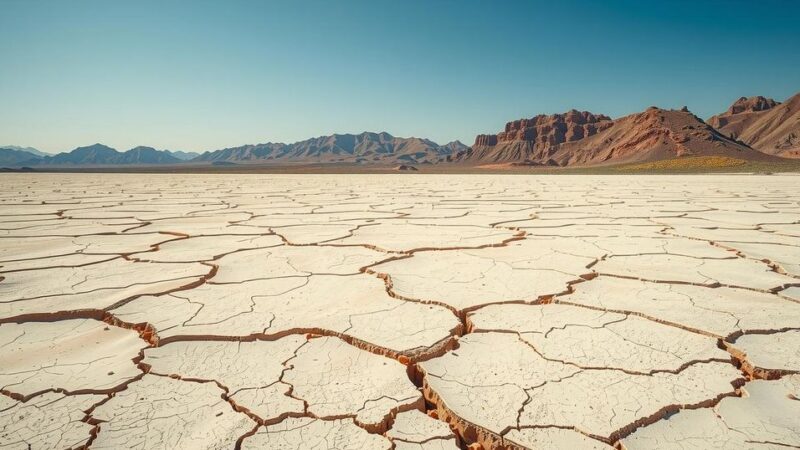Chinguetti, a historic city in Mauritania, is threatened by desertification as the Sahara encroaches on its neighborhoods and cultural heritage. Climate change exacerbates the situation, causing sandstorms and reducing agricultural viability. The local community is fighting back with tree-planting initiatives but faces significant challenges in maintaining their livelihoods and preserving their rich history against this advancing desert.
Chinguetti, an ancient trading post in Mauritania, faces the threat of being hidden beneath the Sahara Desert due to advancing sands. This historic city is known for its libraries filled with significant manuscripts, but climate-induced shifts and increasing desertification put its future at risk. Residents witness their neighborhoods gradually consumed by sand, leading many to believe that they are destined to succumb to this natural invasion.
The impacts of global climate change are evident in Chinguetti, as rising temperatures and prolonged drought conditions worsen the situation. Sandstorms frequently bury homes and streets under layers of sand, while tree-planting initiatives aim to combat these encroaching dunes. Unfortunately, these efforts have not alleviated the fears surrounding the preservation of the city’s rich history and culture.
Chinguetti is one of four UNESCO World Heritage sites in Mauritania, a nation with limited agricultural land. As the Sahara’s expansion continues unchecked, it poses significant risks for the livelihoods of locals, who struggle with dwindling access to water and arable land. Community members like Melainine Med El Wely express deep concern for the city’s fate, likening their plight to a disaster unfolding in slow motion.
Research indicates that desertification threatens not only Chinguetti but broader regions as well, with sand migration playing a pivotal role. The phenomenon accounts for dwindling vegetation and habitats, exacerbating the conditions for local populations. Scientists note that the fear of worsening desertification has shifted from hypothetical to a pressing reality within a short period.
According to a UN report on desertification, over three-quarters of the earth’s land has experienced increased dryness in recent decades, impacting ecosystems essential for survival. Human-induced climate change is a significant contributor to these changes, leading to habitat degradation, health crises, and migration challenges globally. Solutions to counter these threats are critical for communities like Chinguetti.
Local residents face mounting pressures as desert conditions worsen. Farmers, like Salima Ould Salem, must adapt their traditional methods to sustain their crops and maintain livelihoods. With fewer neighbors and homes being buried, the community grapples with the reality of desert encroachment while holding onto hope for preservation efforts. The extinction of vital trees has further escalated the struggle against rising dunes and health risks stemming from dust pollution.
Mohamed Lemine Bahane, a retired teacher, has observed firsthand the impact of climate change in Chinguetti. He attributes increased sand accumulation to the loss of vegetation, which once helped anchor the soil. As rainfall declines significantly, the ecosystem destabilizes, increasing the dependency on newly planted trees to combat the advancing desert, as initiatives like the Great Green Wall seek to restore balance in the area.
Despite ongoing efforts to plant trees, the effectiveness of these projects remains uncertain, with some experts noting that it takes years for tree roots to access groundwater. El Wely stresses the need for continuous resistance against desertification, highlighting the importance of community commitment and the hope for a sustainable future while grappling with the harsh realities of their environment.
Chinguetti confronts the immediate threat of desert encroachment due to climate change and ongoing desertification. With valuable historical manuscripts and libraries under risk, the community faces a dire situation compounded by water scarcity and diminishing agricultural productivity. Efforts to combat these challenges through tree-planting initiatives have shown limited success. However, residents hold onto hope, acknowledging their role in preserving Chinguetti against the advancing Sahara desert.
Original Source: abcnews.go.com






